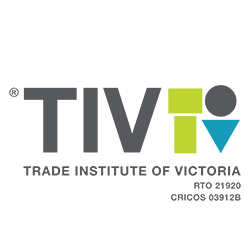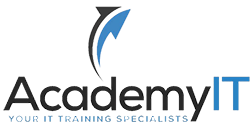Data Analysts: What Do They Do, and Why Are They In Demand?
Published on March 30, 2021
Data analysts make it make sense. Make what make sense, you might ask? Well… everything.
From numbers, to words, to images, almost anything can be considered data. Data analytics is a type of data science that aims to find the patterns, correlations or relationships in the data and analyse their meaning. They then use these insights to answer some big questions and inform some big business decisions.
What is data analysis?
Data-driven analytics is becoming increasingly important across all industries. Why? It allows companies to make more informed decisions. These decisions are based on the insights data analysts deduce from large sets of raw data, that otherwise would be pretty useless to the untrained eye.
“Put as simply as possible,” says data analyst Jesse Peterson, “The role of a data analyst is to take abstract information and transform it into usable information.”
A data analyst’s work can:
- Help create targeted content to the right customer group
- Optimise productivity and opportunities for improvement
- Ensure more objective decision-making takes place
- Help people innovate and explore with purpose
Data analyst responsibilities
“Data analysts take endless rows of seemingly random dates, numbers and dot points, then convert them into easily readable forms, such as graphs, charts, tables and dashboards,” Jesse explains.
To break it down a little more, the data analysis process generally follows these five steps:
Identify
Collect
Clean
Analyse
Report
1. Identify the data, define the question
What question are you trying to answer? What do you need to ask to make sure the right data is chosen to answers questions like:
- What are we doing well?
- What are we doing poorly?
- What are our opportunities for improvement?
- What trends are we seeing?
- Why has x changed?
2. Collect the data
Data collection can occur via a wide range of places, however, some common sources include:
- Surveys
- Website visitor tracking
- Buying datasets from collection specialists
3. Clean the data
Although often very accurate, computers aren’t perfect, so, cleaning data is essential. This means sifting through large datasets and making sure only relevant information remains.
4. Analyse the data
There are four main types of data analyses methods that you’ll use throughout your data analyst career:
- Descriptive
Describes the features of the data set so you can better understand how you should move forward.
- Diagnostic
Helps you find out why something has happened —- what are the correlations between values in the data
- Predictive
Uses past data trends to understand current or possible future trends in the data. Predictive analytics uses techniques from data mining, such as using data models, algorithms and machine learning techniques to make predictions about possible future events. - Prescriptive
Informs future decisions and course of action based on the trends found in the data. Often, this is reached with the help of machine learning techniques.
5. Report the results to stakeholders
Now that you have found the answers or at least, possible answers to the questions you defined in step one, you need to report it. This means putting your analyses into an understandable format so you can inform all and any stakeholders of your findings and advise them on how to move forward.
A day in the life of a data analyst
Jesse executes on these responsibilities in his day-to-day role in a marketing company:

A normal day in my life as a data analyst is going to be broken up into three key activities: briefing, research and presentation.
The first of these activities, briefing, is the simplest. I meet with a co-worker or stakeholder who has a question that they would like answered. Perhaps they would like to know how effectively our business appeals to different demographics, or perhaps they would like to know-how innovations in our business are being received by our clients.
Regardless of what it is, they have an abstract question, and my role is to take this abstract question, break it down and devise a way to answer it empirically using data.
This brings me to the second activity, research, which takes by far the largest amount of my time. I obtain all relevant data to the question at hand, then use my skills, knowledge and technology to break down this data and find out what it is really telling us.
Finally, the most often overlooked — yet extremely important — step: presentation. Improperly presented data can be misleading and deceiving. So, I work to present the data and my findings in a way that is as clear, concise and accurate as possible.
When this is ready, I once again meet with the one who initially came to me with the question. I explain my findings and do everything in my power to answer their initial question.
What do data analysts do in different industries?
Data analysts can work in a range of environments. Like any role, a data analyst’s job description will change depending on which industry you work in and whether you’re an entry-level or senior data analyst. Each industry will have its nuances, its challenges, and specific flow of operations.
Though used to mainly work in investment banks and private equity firms. But now that data is a valuable resource in almost all Australian industries, you can find them working in:
- Marketing
- Healthcare
- Retail
- Insurance
- Technology
Some unique and exciting data analyst career opportunities include:
Business intelligence analyst
A business analyst mostly works with data metrics related to business activities, such as:
- Sales
- Revenue
- Customer engagement
- Market information
You’ll focus on improving a business’ market activities and boosting their revenue, while growing authentic customer engagement. You’ll report your findings to key stakeholders so they can make informed business decisions.
Operations analyst
You’ll most likely be a part of a company’s operations team, and work closely with the operations manager. You’ll focus on finding data-informed strategies to help improve workflow and efficiency of internal business operations.
Transport Logistics Specialist Data Analyst
Here, you’ll use your data analyst skills to optimise how a business can store, transport and deliver large scale quantities of goods.
You’ll be relied upon to find the best paths and methods for products to be delivered, avoiding and problem-solving logistical nightmares like bottlenecking.
Medical and healthcare analyst
In this industry, you’ll work with medical data management systems to compile health care data. This data can be from a medical clinic’s expenses through to patient diagnoses. You’ll be in charge of controlling expenditure, finding ways to assist in providing optimal health care and improving patient experiences.
Data analyst skills
Being a good data analyst means you’ll need a strong blend of both hard and soft skills.
Your technical knowledge is essential to complete the analysis aspect of the role. Some critical skills you’ll need to have under your belt include:
- Using database tools such SQL and Microsoft Excel
- Understanding programming languages like Python or R
- Data visualisation through programs like Tableau or Jupyter Notebook
- A firm grasp of higher level maths and statistics
This is because you’ll be expected to present and justify your work to key stakeholders in an understandable and effective way. You’ll also want to develop strong:
- Critical thinking techniques
- Problem-solving skills
- Analytical skills
Who suits this kind of role?
“A person who enjoys a bit of number crunching, who prefers to work independently, and comes at problems with a critical eye” Jesse says.
However, he also warns that, “Trying to understand all types of information that are being collected can be overwhelming, let alone finding and extracting the very specific data you need.”
A hot tip from Jesse for all budding data analysts (no matter the industry) is to befriend your company’s data engineer ASAP — “They will be your greatest resource in understanding what data is being stored.”
Best Online Data Analytics Courses: Which One Is Right for You?
Interested in learning more about how you can take the next step to your new career as a data analyst? Discover which online data analytics course can help you start your career.
Training.com.au has a wide range of online courses from Australia’s top education providers that can get you ready to leap into this thriving industry.
Browse Data Science Results
Certificate IV in Work Health and Safety BSB41419
Safety is a key component of successful, efficient and productive organisations. There are business benefits such as reduced workers compensation premiums, proactive risk prevention and the maintenance of compliant work environment. This qualification...
Certificate IV in Human Resources Management BSB40420
With the nationally recognised BSB40420 Certificate IV in Human Resource Management qualification, you will gain the skills and knowledge you need to improve human resource functions and performance management with large, medium and small operations Pe...
Certificate IV in Business (Administration)
Embark on an enriching journey with our online Certificate IV in Business Administration course. From the outset, you’ll immerse yourself in the dynamic world of business administration, acquiring advanced skills that will enhance your career pro...
Certificate IV in Accounting and Bookkeeping FNS40222
Kick start your career in accounting, formalise your current skill set or start on a path towards university, by learning the principles of accounting and the practical skills to apply them to daily work, with MCI Institute’s FNS40222 Certificate...
Certificate III in Supply Chain Operations (Warehousing Operations) TLI30321
The Supply Chain Operations online course is designed for both entry level job seekers, and people already working in the logistics industry who are looking for the formal qualification required to move into management positions. MCI Institute’s course...
Certificate III in Information Technology ICT30120
With a ICT30120 Certificate III in Information Technology from MCI Institute you will hold a nationally recognised qualification that is highly relevant to a wide range of industries and valued by your potential employers. A growing reliance on technol...
Certificate III in Cleaning Operations CPP30321
The CPP30321 Certificate III in Cleaning Operations will introduce you to the skills and knowledge needed to succeed in the competitive cleaning industry. You’ll learn how to manage work priorities, use and maintain cleaning chemicals and equipment saf...
Diploma of Building and Construction (Building) (VIC Only) CPC50220
TIV’s CPC50220 – Diploma of Building and Construction (Building) is crafted to meet the requirements set by the Victorian Building Authority for registration as both Domestic Builder (Unlimited) and Commercial Builder (Limited Low Rise). It covers a co...
Veterinary Assistant & Animal Welfare Course Bundle
Isn’t it time you turned your passion for animals into a job you love doing every day? Have you always wanted to secure a role within the animal field? Whether you wish to enter a veterinary clinic as a vet nurse, work alongside exotic animals as...
Diploma of Information Technology (Cyber Security) ICT50220
Cyber security engineers are in high demand all over the world as organisations continue their journeys towards digital transformation. The ICT50220 Diploma of Information Technology (Cyber Security) will provide foundational skills for aspiring cyber...
Cyber Security Governance, Risk and Compliance Professional
Master the Fundamentals of Cyber Security Governance, Risk, and Compliance Launch your career in high-demand cyber security with a focus on Governance, Risk and Compliance (GRC). This comprehensive course is designed to equip participants with the know...
Certificate IV in Information Technology Cyber Security Focus
Defend the Digital World - Build Your Career in Cyber Security Cyber threats are evolving - so should your skills. The ICT40120 Certificate IV in Information Technology Cyber Security Focus provides the practical knowledge and hands-on experience...
Cyber Security Architect
Certificate III in Information Technology Elective Focus Basic Cyber Security Awareness ICT30120
Secure a career in information technology. Our ICT30120 Certificate III in Information Technology – Elective Focus Basic Cyber Security is ideal for anyone wanting to start a career in information technology. The skills and knowledge you will learn in...
Certified Cybersecurity Professional
Our Certified Cybersecurity Professional course will prepare you for a career in an industry with 0% unemployment. This interactive online course will take you from zero industry experience to a job ready, front line Cybersecurity Analyst in less than...
Certificate III in Information Technology ICT30120
Technology is now a fundamental part of our lives – there are screens we interact with every day. The use of technology will only increase in the coming years. The need for software developers, hardware administrators, infrastructure designers and supp...
Certificate IV in Information Technology (Networking) ICT40120
Every part of our world is now connected – we live and work online. The call for highly skilled infrastructure experts is urgent, and this need is expected to increase for many years to come. New technologies, the sudden need for many to work from home...
Bachelor of Cyber Security (VIC, NSW, QLD and WA Only) CRS1401441
The Bachelor of Cyber Security offered by AIBI Higher Education is a technical course designed to prepare students for entry-level roles leading to an exciting career in Cyber Security. Students will first learn the foundations of information technolog...
System Administrator Collection
If you are looking for a career change into the Tech industry, or you are currently working in IT and want to up-skill and specialise, our pathway of 5 international vendor certifications from CompTIA and Microsoft are what you need to unlock your pote...
PenTest Collection
If you are looking for a career change into the Tech industry, or you are currently working in IT and want to up-skill and specialise, our pathway of 5 international vendor certifications from CompTIA are what you need to unlock your potential and Relo...
Networking Collection
If you are looking for a career change into the Tech industry, or you are currently working in IT and want to up-skill and specialise, our pathway of four international vendor certifications from CompTIA and Cisco are what you need to unlock your poten...
Online courses also available
Latest Articles
The Future of Counselling Jobs in Australia
Thinking about a career in counselling? You might wonder—is it a good career choice right now? Will...
How to Get Your Counselling Accreditation and Registration
Embarking on a counselling career in Australia offers a fulfilling opportunity to support people in...
What Are Counselling Microskills?
Microskills are fundamental communication techniques used to build rapport, actively listen, and gui...
Want to read more?
What Does a Beautician or Beauty Therapist Do? Bringing Joy Through Beauty
As a beautician or beauty therapist, you’ll make your clients feel gorgeous from the outside in. Bea...
How to Become a Nail Technician
Interested in nail art, but you're not sure where to begin? Here's a guide to becoming a nail techni...
15 Skills Essential to Becoming a Real Estate Agent
So, you’re an outgoing, enthusiastic individual? Tick. You love conversation, and love working and c...









